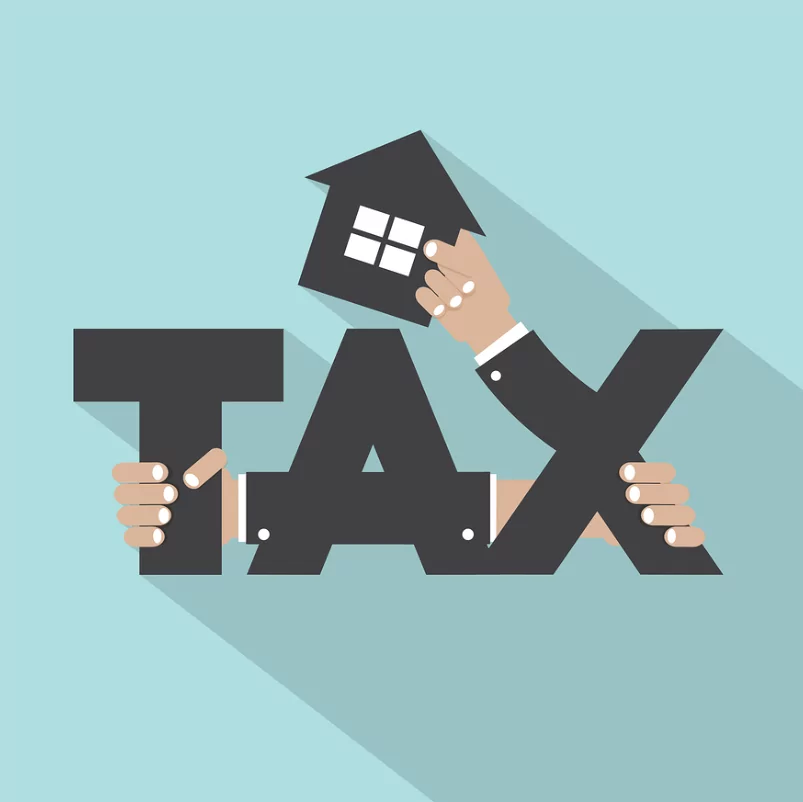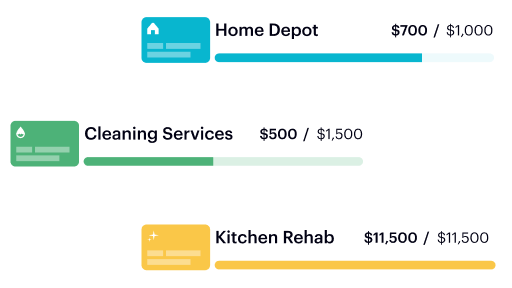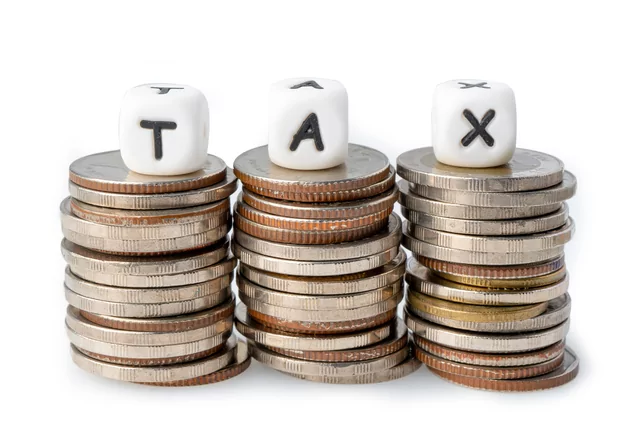Having to pay tax on your rental property income is one of the frustrations of being a landlord. Fortunately, you can deduct most of your expenses from your income and only pay tax on your profits. In fact, there are nine different types of tax deductions you can claim as a landlord.
1. What Tax Deductions can I Claim as a Landlord?
According to the IRS, you can claim rental property tax deductions for all of your rental property expenses as long as they meet two criteria: they are ordinary (i.e., you’re not the only landlord claiming that type of expense), and they are necessary (i.e., you can’t reasonably run a rental business without the expense).
While a stone lion statue for the front garden is unlikely to be considered ordinary or necessary, most of your deductible expenses will meet the criteria for rental property tax deductions and can be deducted using Schedule E.
These are the most common tax deductions you can claim as a landlord:
- Interest on mortgage payments and other loans
The IRS allows you to deduct the interest portion of loans you’ve taken out for your rental properties and any fees (including origination fees). Note that you can only deduct interest in the year it’s applied to the mortgage, which is not necessarily the year it was paid. Your mortgage lender(s) should send you a Form 1098 detailing your interest payments.
You can also deduct interest from other loans, including interest paid on credit cards, as long as the borrowed money was used for your rental property.
- Taxes
Any property taxes you’ve paid in the year on your rental properties can be deducted from your tax return. You can also deduct any fees you paid for tax advice and preparation. Note that income taxes can’t be deducted, and sales tax should be included with their applicable expenses and not deducted separately. If you’re filing individually, the combined tax deduction for you and your spouse is limited to $10,000 when submitting your tax return.
- Advertising
You can deduct the cost of advertising the property if you have a vacancy. Remember to keep your advertising expenses separate from other turnover costs, like cleaning, repairs, and maintenance costs, which should be reported on a separate line.
- Maintenance, repairs & cleaning
According to the US Census Bureau’s 2019 American Housing Survey, the average homeowner spends $931 per year on routine maintenance activities. You can deduct all of your routine maintenance, like painting and general cost of repairs, on your Schedule E, as well as HOA fees and property management fees paid to a property management company. Note that you can’t deduct the cost of improvements (like replacing a furnace) as they’re considered a capital improvements expense.
- Utilities
If you pay for the cost of utilities, like electricity, natural gas, and water, for your rental properties, including during periods of vacancy, you can deduct those expenses.
- Insurance
Having proper rental property insurance is vitally important to ensure you and your property are protected while it’s being rented out. You can deduct the entire compensation insurance cost from your rental income on your property taxes.
- Depreciation
Depreciation refers to your rental property’s natural loss in value over time. It can be calculated using Form 4562 and deducted from your Schedule E. One of the tax benefits of owning rental property is this depreciation deduction. The IRS doesn’t require you to submit documents proving depreciation, but you do need to keep them as part of your permanent records in case of an audit. Make sure your rental property business bookkeeping is in tip-top shape to take advantage of these tax benefits fully.
- Travel
You can deduct travel expenses if you travel to and from your rental properties for business. If you travel by car, you can deduct your actual expenses (only for the miles driven for business) or use the standard mileage rate of 56¢ cents per mile. You can also deduct 50% of your meal expenses if you’re traveling away from home, so be sure to keep your receipts.
- Office and related expenses
You can deduct the cost of any office and related expenses you use for your rental business expenses. That includes the space, supplies, and things like utilities, phones, and internet. If you have a home office, you can deduct it using the home office deduction. Note that certain office equipment, like computers, are considered capital office expenses and should be depreciated rather than deducted.
- Professional fees
You can deduct the cost of tax advice and preparation on your Schedule E, which is particularly beneficial for real estate investors. Consulting with a tax professional can provide further clarity on these deductions. You can also deduct commissions paid to a real estate agent or other service providers for helping you find a tenant.
However, legal and real estate expenses pertaining to your personal property can’t be directly deducted. Real estate investors should note that commissions, closing costs, title insurance, notary fees, and other legal fees are considered capital expenses and rolled into your depreciation amount. It’s advisable to seek advice from a tax professional to understand these nuances better.
2. What is considered rental income?
All of these deductions reduce your rental income, which, in turn, reduces the amount of taxable income you have to pay. But what does rental income comprise?
The IRS considers rental income to be all the money you receive by renting out real property that’s located in the United States. Real property could be a living unit like a house, condo, or apartment. It could also be a parking space or storage unit. Rent, fees, royalties, interest, and any other money that arrives in your landlord’s banking account is considered rental income.
Rental income doesn’t include money made on foreign properties or from renting other items like a vehicle or equipment. For example, if you own a lawn tractor that you rent out during the summer, you would not claim it as rental income on your taxes.
3. What Records should I Keep to Claim My Deductions?
The IRS requires you to keep permanent records of your expenses in case they have questions. It’s a best practice to keep a record of every transaction related to your rental properties, including the date, location, and dollar amount. For vehicle expenses, you should keep a diary of the time, location, and mileage at the beginning and end of each trip.
It can be time consuming and difficult to keep proper records, but it’s important to make sure you’re tracking everything so that you don’t miss any deductions or get in trouble in case of an audit. Landlord bookkeeping software can help make it easier to track expenses and find records when you need them.
4. Is Homeowners or Rental Insurance Tax Deductible?
Landlord insurance is must-have coverage that protects you and your personal property while you’re renting it out. According to Valuepenguin, the average rental property insurance policy costs about $1,800 per year. Fortunately, the entire insurance cost for your properties can be deducted from your taxes. If you’re renting out a unit in an owner-occupied property, you can only deduct the portion of insurance that applies to the rental unit.
Final thoughts: Tax deductions for landlords
There are a lot of expenses involved in running a rental property. Fortunately, all of your ordinary and necessary expenses can be deducted and reduce the tax you owe. Rental property owners should be sure to keep proper records of every transaction so they don’t miss any deductions, and they’re prepared to give documentation to the IRS in case they request it.
Read More:
- Tax deductions are nice, but the best way to save money is to reduce your expenses in the first place – and a great way to do that is to make sure your rental property insurance is optimized. Learn more in our article, Landlords Guide to Insurance: Which Insurance Do You Need to Have?
FAQs
Rental income and expenses should be reported on your taxes using Schedule E, on the Form 1040. For each property, record the address, type of property, how it was used, income, and expenses. You can save time on sorting through rental finances by using a separate bank account for each property. Then, add together all the amounts reported and enter your total rental income on line 41 on page 2 of your return.
You should not claim the same amount for depreciation every year. The amount you can claim is prorated in the first year, and could change over time based on how you use the property. Depreciation also includes major improvements to the property (like a new roof or HVAC system) which begin to depreciate in the year they’re completed. Use Form 4562 to calculate your depreciation amount each year to make sure you’re claiming everything you’re entitled to. Consult a tax expert about how to accelerate depreciation.
When you file your taxes in April, you pay tax on every dollar of income you earn – including money earned from renting out properties. Rental property deductions subtract your expenses from your rental income, reducing the total amount of rental income you report to the IRS, and reducing the total amount of tax you have to pay.






